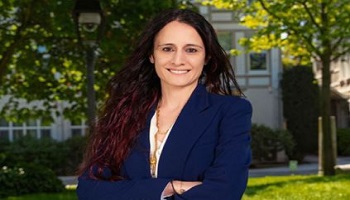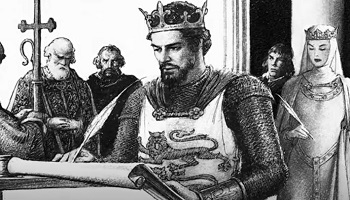
Abdulsamad Rabiu Net Worth Nigeria Industrial Powerhouse
Nigeria, Africa’s largest economy, is home to some of the continent’s wealthiest and most influential individuals. Among them, Abdulsamad Rabiu stands out as a leading figure in the industrial and business landscape. As the founder and chairman of BUA Group, one of Nigeria’s largest conglomerates, Rabiu has built a legacy of innovation, leadership, and wealth creation. With an estimated net worth of $8.2 billion as of 2024, Rabiu ranks among Africa’s richest individuals. In this blog post, we delve into the sources of his wealth, his journey to success, and his impact on Nigeria’s economy.
Who is Abdulsamad Rabiu?
Abdulsamad Rabiu was born on August 4, 1960, in Kano, Nigeria. He hails from a wealthy and entrepreneurial family, with his father, Khalifah Isyaku Rabiu, being a prominent industrialist in the 1970s and 1980s. Growing up in an environment steeped in business, Abdulsamad inherited his father’s entrepreneurial spirit and laid the foundation for what would become a business empire.
After completing his education at Capital University in Columbus, Ohio, USA, Abdulsamad returned to Nigeria to manage the family business. However, his ambitions led him to establish his own company, BUA Group, in 1988. Over the years, BUA Group has grown into a diversified conglomerate with interests in cement production, sugar refining, real estate, and logistics.
Abdulsamad Rabiu’s Net Worth: A Breakdown
As of 2024, Abdulsamad Rabiu’s net worth is estimated at $8.2 billion, according to Forbes. Here’s how his wealth is distributed across various sectors:
1. Cement Production
One of the primary drivers of Abdulsamad Rabiu’s wealth is BUA Cement, a leading player in Nigeria’s construction and infrastructure industry. Cement is a critical commodity in Nigeria, where rapid urbanization and infrastructure development are fueling demand.
- BUA Cement operates several state-of-the-art plants, including the Obu Cement Complex and the Kalambaina Cement Plant. These facilities have a combined production capacity of millions of metric tons annually.
- BUA Cement is listed on the Nigerian Stock Exchange, with a market capitalization in the billions, further boosting Rabiu’s fortune.
2. Sugar Refining
The sugar industry is another cornerstone of BUA Group’s operations. Abdulsamad Rabiu’s company owns some of Nigeria’s largest sugar refineries, including the Lafiagi Sugar Company and the Port Harcourt Refinery.
- These refineries not only supply sugar to domestic markets but also export to other African countries, contributing significantly to BUA Group’s revenue.
- The company’s investments in sugar plantations and refineries have positioned it as a key player in Nigeria’s quest for self-sufficiency in sugar production.
3. Real Estate
Rabiu has also invested heavily in Nigeria’s real estate sector. Through BUA Properties, he has developed luxury residential and commercial properties across major cities, including Lagos and Abuja. These investments cater to Nigeria’s growing middle and upper classes.
4. Logistics and Ports
BUA Group owns and operates a series of logistics and port operations, facilitating the import and export of goods. This vertical integration allows the conglomerate to control its supply chain, reducing costs and maximizing profits.
The Journey to Billionaire Status
Early Challenges and Triumphs
When Abdulsamad Rabiu established BUA Group in 1988, the company’s initial focus was on commodity trading, particularly in rice, edible oils, and iron and steel. Leveraging Nigeria’s burgeoning demand for these products, the company quickly gained a foothold in the market.
In the 1990s, Rabiu expanded BUA Group’s operations into sugar refining, establishing the company’s first refinery in Lagos. The success of this venture marked the beginning of BUA Group’s evolution into a diversified industrial powerhouse.
Strategic Investments
One of the key factors behind Abdulsamad Rabiu’s success is his ability to identify and seize opportunities in high-demand sectors. By focusing on industries such as cement and sugar, which are critical to Nigeria’s economy, he ensured steady revenue streams and long-term growth.
Rabiu’s strategic decision to invest in state-of-the-art manufacturing facilities and adopt vertical integration allowed BUA Group to outperform competitors and meet growing market demands.
Impact on Nigeria’s Economy
Abdulsamad Rabiu’s contributions to Nigeria’s economy are immense. His businesses have created thousands of jobs, boosted local production, and reduced the country’s reliance on imports. Here are some of the ways he has impacted Nigeria:
1. Job Creation
BUA Group employs thousands of people across its various operations, from factory workers to corporate executives. This has helped reduce unemployment and improve living standards in communities where the company operates.
2. Industrial Development
Rabiu’s investments in manufacturing have stimulated industrial growth in Nigeria. By building world-class facilities, he has set new benchmarks for quality and efficiency in the country’s industrial sector.
3. Economic Diversification
Through BUA Group, Rabiu has contributed to diversifying Nigeria’s economy, reducing its dependence on oil and gas. His focus on cement, sugar, and agriculture aligns with Nigeria’s economic diversification goals.
Philanthropy and Social Responsibility
Abdulsamad Rabiu is not just a businessman; he is also a philanthropist committed to giving back to society. Through the Abdulsamad Rabiu Africa Initiative (ASR Africa), he has donated millions of dollars to various causes, including education, healthcare, and infrastructure development.
Key Initiatives
- Healthcare: Rabiu has funded the construction of hospitals and donated medical equipment to improve healthcare access in underserved communities.
- Education: He has provided scholarships to students and invested in educational infrastructure, including classrooms and laboratories.
- Infrastructure: ASR Africa has supported the construction of roads, bridges, and other critical infrastructure projects, contributing to national development.
Challenges and Criticism
Like many successful entrepreneurs, Abdulsamad Rabiu has faced challenges and criticism. Nigeria’s business environment is often marked by regulatory hurdles, corruption, and economic instability. Despite these challenges, Rabiu’s resilience and strategic vision have enabled him to navigate these complexities and build a thriving business empire.
Some critics have questioned the role of government connections in the success of Nigerian billionaires. However, Rabiu’s track record of investments and innovation speaks volumes about his capabilities as a businessman and leader.
Comparing Abdulsamad Rabiu to Other African Billionaires
Abdulsamad Rabiu’s wealth places him among Africa’s richest individuals, alongside names like Aliko Dangote and Johann Rupert. While Dangote remains Africa’s richest man with a focus on similar industries, Rabiu has carved out his niche by focusing on efficiency and quality in production.
Rabiu’s approach to business, emphasizing vertical integration and self-sufficiency, sets him apart from many of his peers. His contributions to Nigeria’s economy and society also make him a role model for aspiring entrepreneurs.
Conclusion
Abdulsamad Rabiu’s journey from a young entrepreneur managing his family business to becoming one of Africa’s richest individuals is a testament to the power of vision, hard work, and strategic thinking. With a net worth of $8.2 billion, he has not only built a business empire but also contributed significantly to Nigeria’s economic development and social progress.
As he continues to expand his ventures and give back to society, Abdulsamad Rabiu remains an inspiration to millions. His story is a reminder that with determination and innovation, it is possible to achieve remarkable success while making a positive impact on the world.



